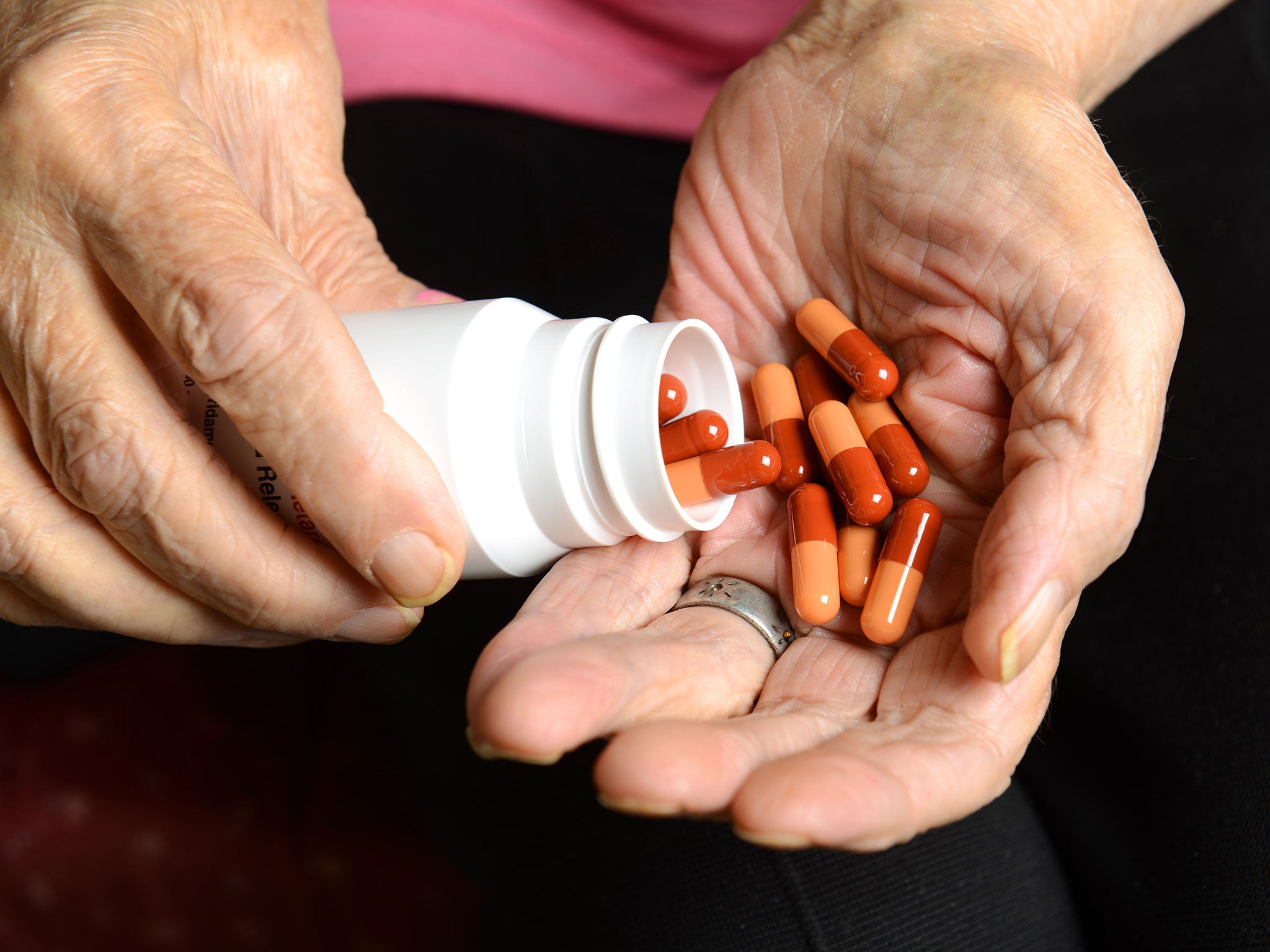Take your medication at the right time of day or it might not work, scientists say
New study suggests different drugs work at different times on our body clocks

The time of day or night might become an important factor in determining when to take a prescription drug according to a study showing that different parts of the body become active at different times on a 24-hour biological clock.
Scientists have for the first time mapped the daily and nightly patterns of gene activity in a dozen organs and tissues around the body and found wide unexpected variations that could affect any drugs targeted at those parts of the body.
The liver has turned out to have the strongest 24-hour cycle, being most active in the late evening just before midnight, while the genes of the adrenal glands have the highest activity in the early morning, just after 6am, the study found.
Although the research, published in the journal Proceedings of the National Academy of Sciences, was carried out on laboratory mice, the researchers believe the findings are likely to be relevant to patients taking prescribed drugs targeting different parts of the body.
The scientists found that the activity of about half of the genes of the mouse oscillated predictably over a 24-hour schedule. Meanwhile, most of the best-selling prescription drugs are designed to target the proteins controlled by these oscillating genes, and yet have only a relatively short life once inside the body, they said.
While 43 per cent of genes were found to show a 24-hour rhythm, the scientists found 56 of 100 top-selling drugs and 119 out of 250 of the WHO’s “essential medicines” work on the products of these oscillating genes, the scientists said.
Taking a drug at a particular time of the day or night might therefore be critical because the medicine may have only a relatively limited time-span to overlap with the activity of a target organ, said Professor John Hogenesch of the University of Pennsylvania.
“Most of these drug targets were not known to be clock-regulated. Because this isn’t appreciated, few of these drugs have been evaluated for time-of-day-dependent efficacy, metabolism or toxicity,” Professor Hogenesch said.
The study analysed the production of a biological molecule called “messenger RNA” which is involved in protein synthesis based on the genetic code of the genes. By measuring mRNA levels, the scientists were able to judge gene activity in each of 12 different sites in the body.
“The genome is under much more clock control than we once thought. Since only a few organs were studied previously, we were only looking under the lamppost. Now we have the most comprehensive survey to date,” said Michael Hughes, a member of the research team, now at the University of Missouri, St Louis.
Subscribe to Independent Premium to bookmark this article
Want to bookmark your favourite articles and stories to read or reference later? Start your Independent Premium subscription today.

Join our commenting forum
Join thought-provoking conversations, follow other Independent readers and see their replies